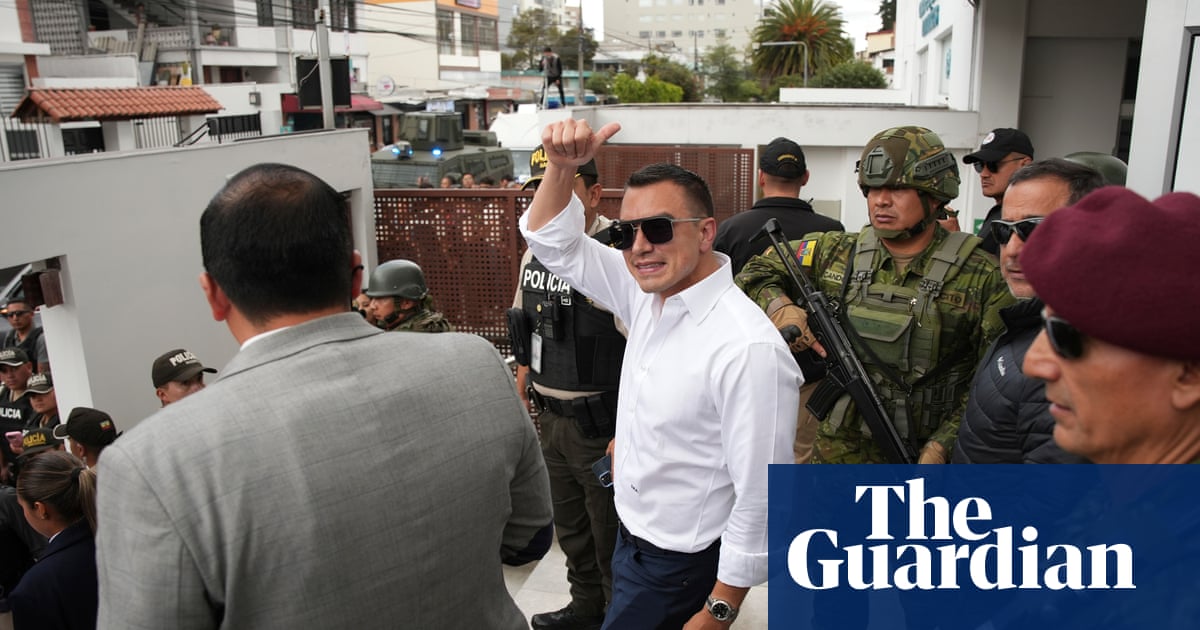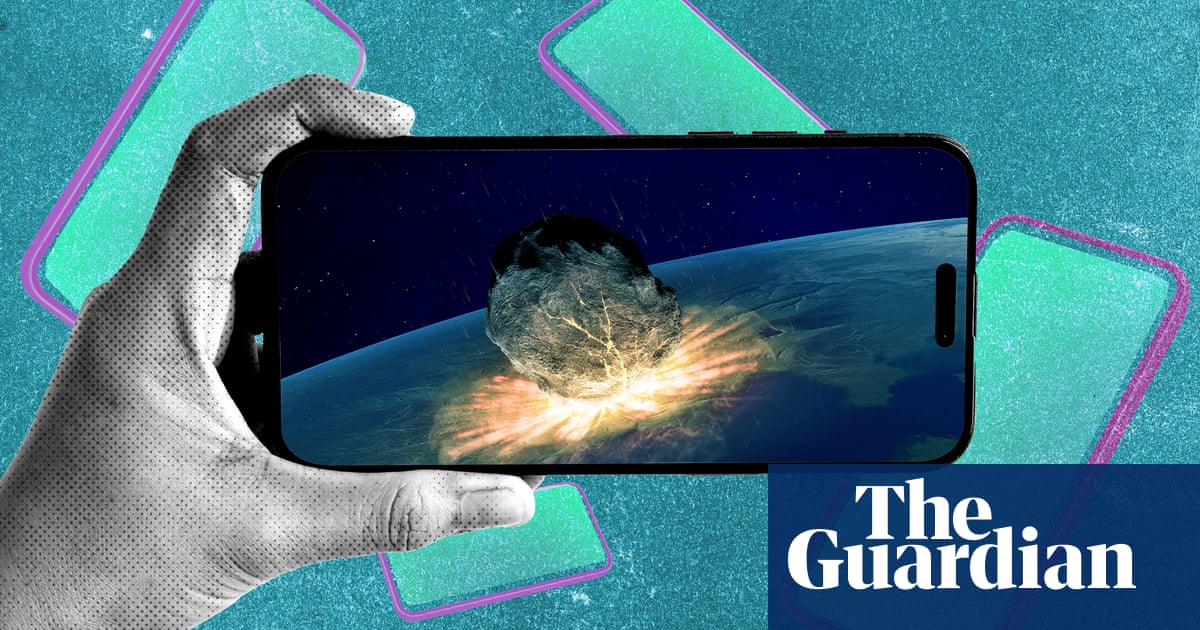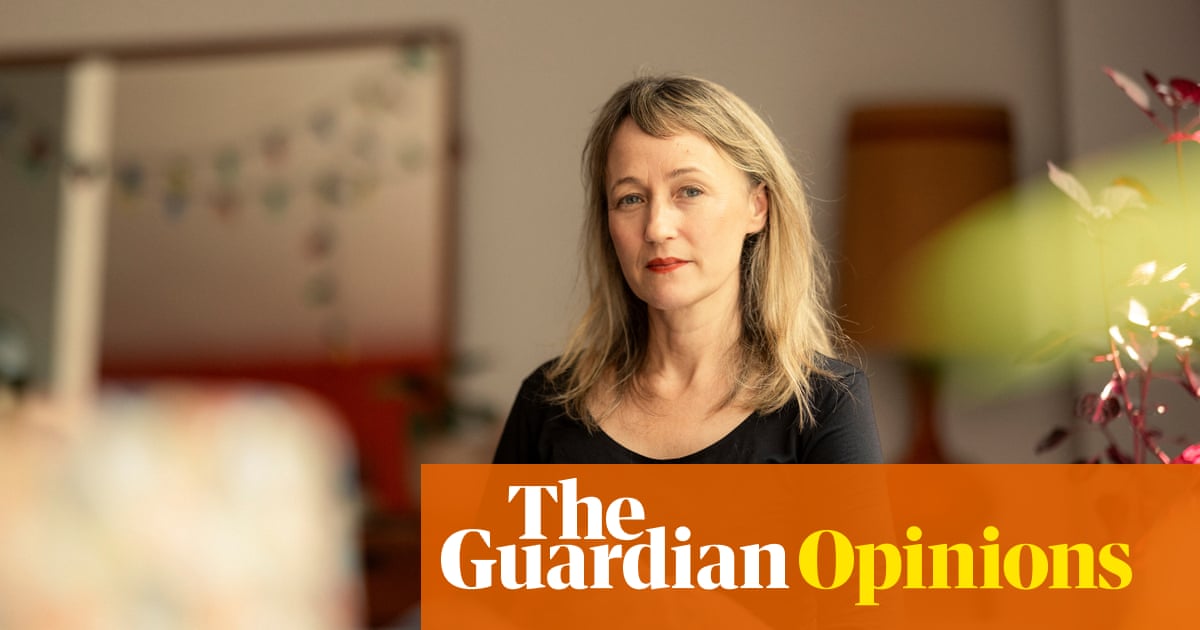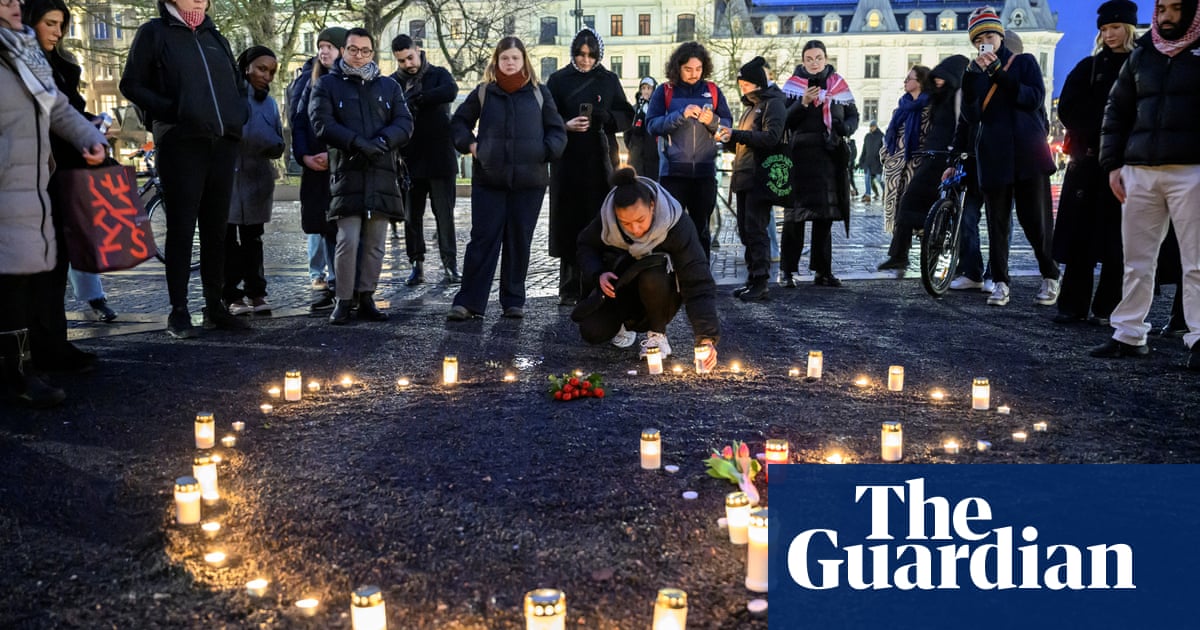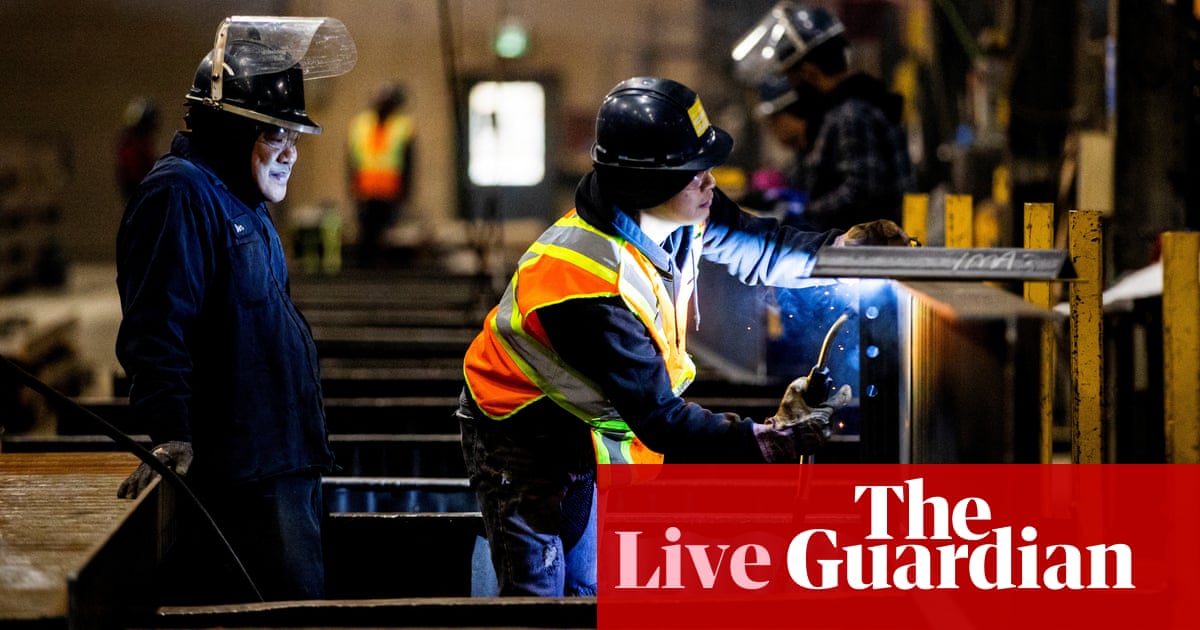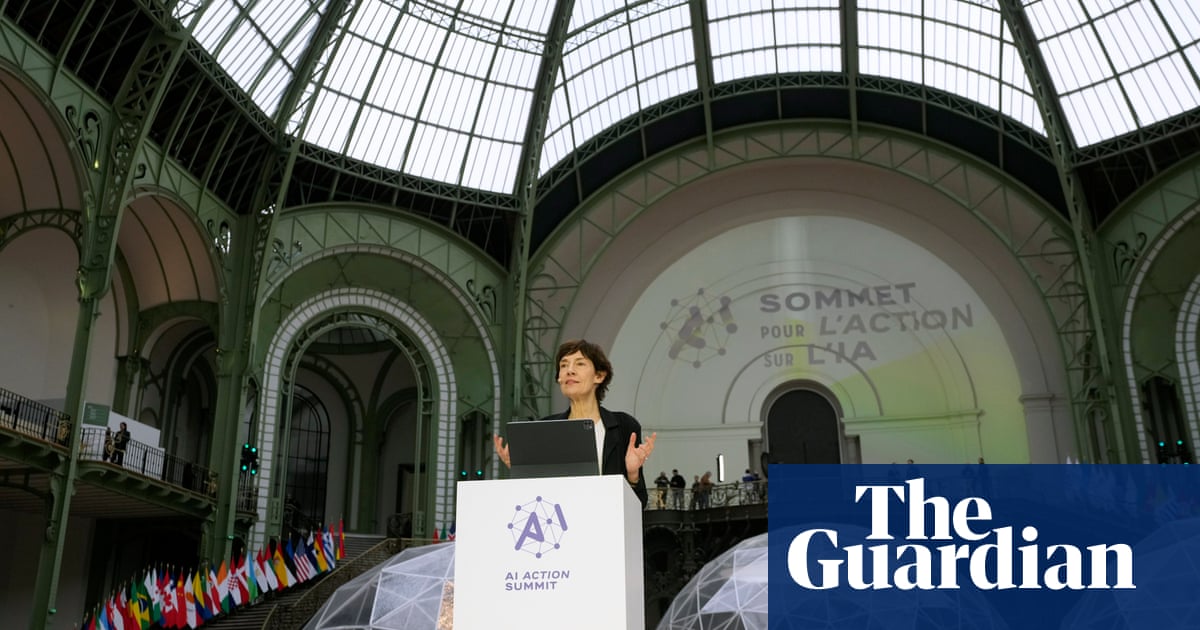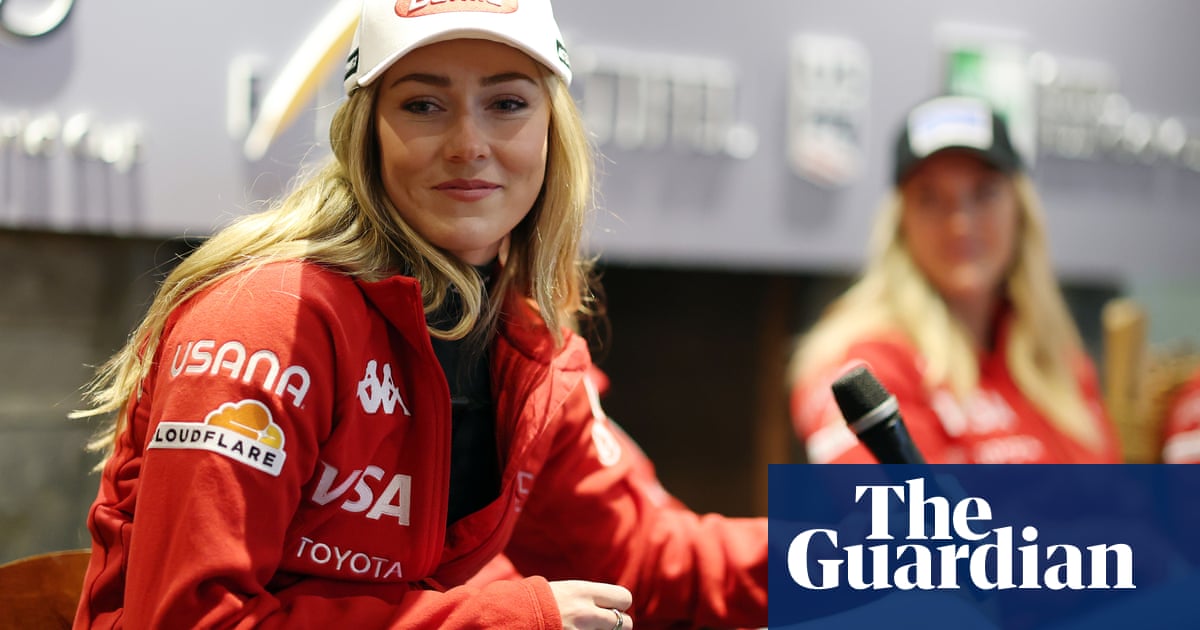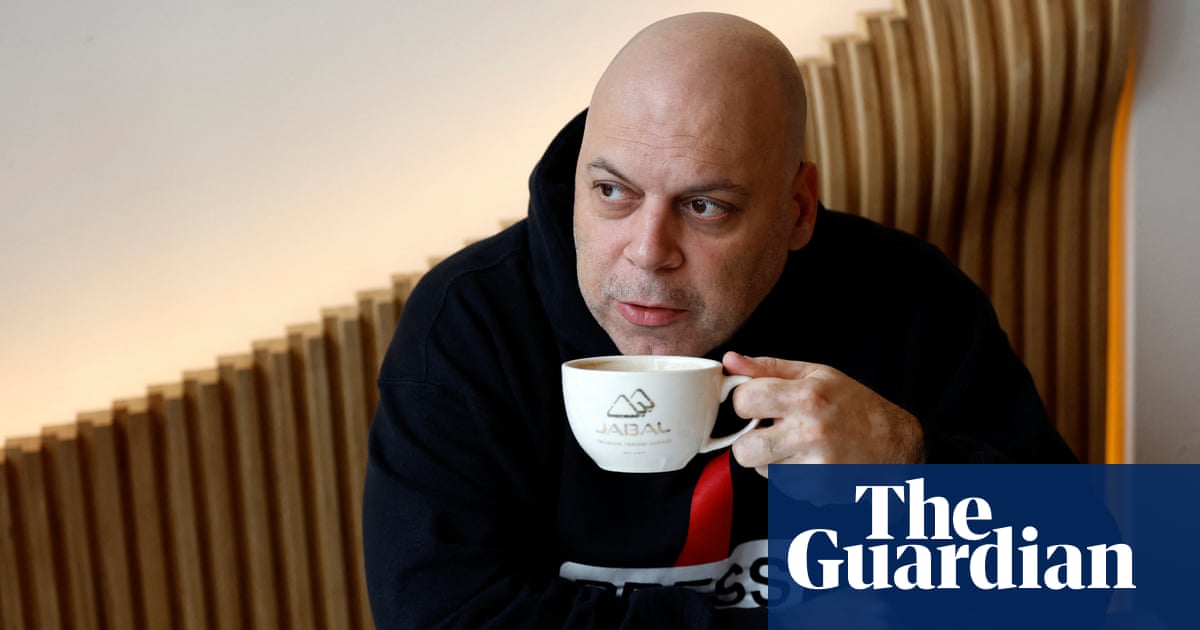Key events Show key events only Please turn on JavaScript to use this feature
Now, quickly a final word on yesterday’s event in Oświęcim and the 80th anniversary of the liberation of the Nazi German concentration camp in Auschwitz.
Our Europe correspondent Jon Henley was there and here is his report.
On a day of startling blue skies, Auschwitz survivors stood before princes and presidents on Monday to remind the world, perhaps for the final time, of the horrors they suffered there during one of the darkest moments of human history.
Beneath a white marquee erected in front of the gate to the former Nazi death camp, four former inmates – the youngest 86, the oldest 99 – warned world leaders on the 80th anniversary of its liberation against the danger of rising antisemitism.
For detailed minute-by-minute coverage, check our Europe live blog from yesterday.
Morning opening: With friends like these

Jakub Krupa
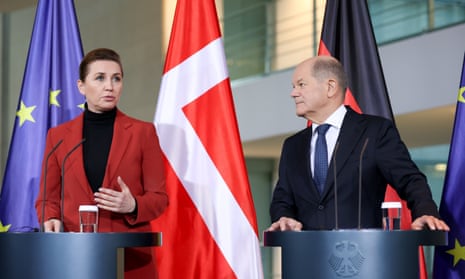
Danish prime minister Mette Frederiksen travels to Berlin, Paris and Brussels at short notice today as she seeks to seek European unity in response to US president Donald Trump’s repeated plans to “get” Greenland.
“Denmark is a small country with strong allies. And it is part of a strong European community where together we can meet the challenges we face. … With war on the continent and changes in geopolitical reality, ... unity is crucial,” she said in a statement in Danish published last night.
Her trip comes after a similar show-of-unity meeting over the weekend when she hosted the prime ministers of Sweden and Norway and the president of Finland in Copenhagen for what looked like the cosiest, most relaxed dinner between world leaders ever.
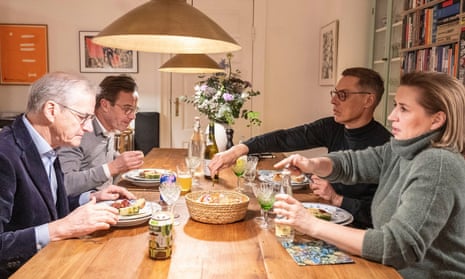
But pictures can be deceiving.
On Monday, Denmark announced plans to invest £1.65bn ($2bn) to boost its security in the Arctic region with new ships, long-range drones, and satellites to help police the area. One of the priorities is tellingly named “asserting the sovereignty.” (No word on extra dog sleds, which Trump ridiculed last week.)
Defence minister Troels Lund Poulsen said the country’s intelligence services warned against a higher-than-usual threat level in the region. And presumably, they do not just mean the usual suspects in the Russians and the Chinese.
Even putting military pressure aside, the US is Denmark’s biggest export market, with pharmaceutical, machinery, and technical equipment top of the list. Any disruption – for example, through Trump’s favourite word, tariffs – would hurt and could easily escalate quickly as the EU would be expected to respond as a bloc.
Danish parliament speaker Søren Gade said this morning in the Danish press that Trump’s words on Greenland felt “like a kick in the gut” after years of close cooperation within Nato, with Danish troops joining US missions in Iraq and Afghanistan.
In a telling passage of his interview with the Politiken newspaper, he said he would usually trust the US and follow the country’s view on defence issues. Still, even he is bewildered by the current diplomatic crisis.
In line with what the Financial Times is reporting as a deliberate tactic to avoid further public confrontation with Trump, EU foreign policy chief Kaja Kallas sought to play the situation down when she addressed reporters yesterday.
She backed Denmark but insisted that “we are not negotiating on Greenland,” and “we shouldn’t also go into speculation about what-ifs because this is not the situation right now.”
But the nerves are palpable, and Frederiksen will not want to take risks. That’s why she is off around Europe.
On Tuesday morning, she said that “we need a stronger and more resolute Europe, standing increasingly in its own right” in the context of growing Russian and Chinese challenges.
Could she mean someone else, too?
It’s Tuesday, 28 January 2025, and this is Europe live. It’s Jakub Krupa here.
Good morning.

 1 week ago
31
1 week ago
31

